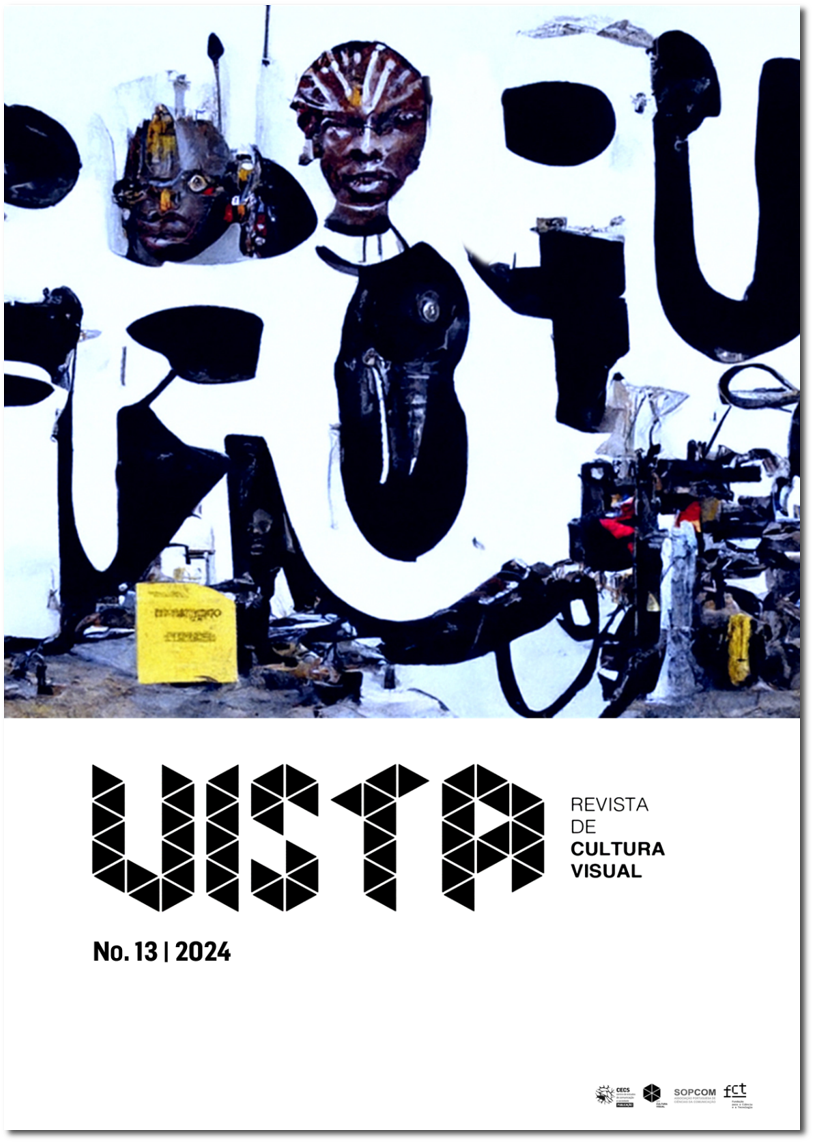Liberating Minds: The Intellectual Legacy of Angela Davis and Its Images in Film
DOI:
https://doi.org/10.21814/vista.5505Keywords:
decolonial, Black independent cinema, Angela Davis, abolitionismAbstract
We propose thinking of Angela Davis's intellectual legacy from a decolonial perspective. We point out that just as the fight for civil rights and the end of racial segregation in the United States helped to consolidate the Black movement in Brazil, the circulation of anti-colonial ideas during the struggles for the decolonization of African countries in the 1950s and 60s was crucial to the circulation of abolitionist ideas and anti-racist movements in the United States and abroad. We will analyze interchanges capable of pointing out "the recognition of multiple and heterogeneous colonial differences, as well as the multiple and heterogeneous reactions of populations and subjects subordinated to the coloniality of power" (Bernardino-Costa & Grosfoguel, 2016, p. 21). Our contribution seeks to analyze Davis as a public and militant intellectual through her images in film. Beyond considering Angela Davis's image in cinema as representation, we also analyze how her intellectual and political activities were involved with the flourishing of a new Black cinema in the United States. This paper analyzes films such as Child of Resistance (1973), Free Angela and All Political Prisoners (2015), and 13th (2016).
Downloads
References
Almeida, S. L. (2018). O que é racismo estrutural? Editora Letramentos.
Bernardino-Costa, J., & Grosfoguel, R. (2016). Decolonialidade e perspectiva negra. Sociedade e Estado, 31(1), 15–24.
Crenshaw, K. (1989). Demarginalizing the intersection of race and sex: A Black feminist critique of antidiscrimination doctrine, feminist theory and antiracist politics. University of Chicago Legal Forum.
Davis, A. Y. (1993). Afro images: Politics, fashion, and nostalgia. Critical Inquiry, 21(1), 37–45. https://doi.org/10.1086/448739
Davis, A. Y. (2003). Are prisons obsolete? Seven Stories Press.
Davis, A. Y. (2007). Racialized punishment and prison abolition. In T. L. Lott & J. P. Pittman (Eds.), A companion to African American philosophy (pp. 360–369). Blackwell Publishing.
Diawara, M. (1993). Black American cinema. Routledge.
Dussel, E. (1995). Introducción a la filosofía de la liberación. Nueva América. (Original work published 1979)
Ferrer, N. F. (2020, August 21). Jean Genet Parle d'Angela Davis. New Media Art. https://www.newmedia-art.org/cgi-bin/show-oeu.php?IDO=150000000037998&LG=GBR&ALP=R
Gilroy, P. (1993). The Black Atlantic: Modernity and double consciousness. Verso Books.
Grosfoguel, R. (2008). Para descolonizar os estudos de economia política e os estudos pós-coloniais: Transmodernidade, pensamento de fronteira e colonialidade global (I. M. Ferreira, Trans.). Revista Crítica de Ciências Sociais, 80, 115–147.
Guimarães, V. (2020, August 20). Pedra na vidraça: Uma introdução ao LA Rebellion. Janela de Cinema.
hooks, b. (1992). Black looks: Race and representation. South End Press.
Moradores filmam agressão policial a adolescente em Salvador: 'Você para mim é ladrão, olha esse cabelo', diz PM. (2020, February 3).G1. https://g1.globo.com/ba/bahia/noticia/2020/02/03/moradores-registram-agressao-policial-a-jovem-no-suburbio-de-salvador-voce-para-mim-e-ladrao-olha-esse-cabelo-disse-pm-video.ghtml
O'Sullivan, S. (2001). Representations of prison in nineties Hollywood cinema: From Con Air to The Shawshank Redemption. The Howard Journal, 40(4), 317–334.
Sales, M., & Muniz, B. (2020). Black women's oppositional gaze making images. Vista, (6), 101–119. https://doi.org/10.21814/vista.3061
Sandarg, R. (1986). Jean Genet and the Black Panther party. Journal of Black Studies, 16(3), 269–282.
Taylor, C. (2015). Once upon a time in the west… L.A. Rebellion. In A. N. Field, J. C. Horak, & J. N. Stewart (Eds.), L.A Rebellion: Creating a new Black cinema (pp. ix–xxiv). University of California Press.
Ture, K., & Hamilton, C. V. (1992). Black power: The politics of liberation in America. Vintage Books.
TV Boitempo. (2019, October 20). ANGELA DAVIS | A liberdade é uma luta constante [LEGENDADO] [Video]. YouTube. https://www.youtube.com/watch?v=7Lff8ScaF1Y
University of California Television (UCTV). (2014, January 7). Free Angela and all political prisioners[Video]. YouTube. https://www.youtube.com/watch?v=N1wr-BXtIW0
Downloads
Published
How to Cite
Issue
Section
License
Copyright (c) 2024 Michelle Sales, Bruno Muniz

This work is licensed under a Creative Commons Attribution 4.0 International License.
Authors own the copyright, providing the journal with the right of first publication. The work is licensed under a Creative Commons Attribution 4.0 International License.













